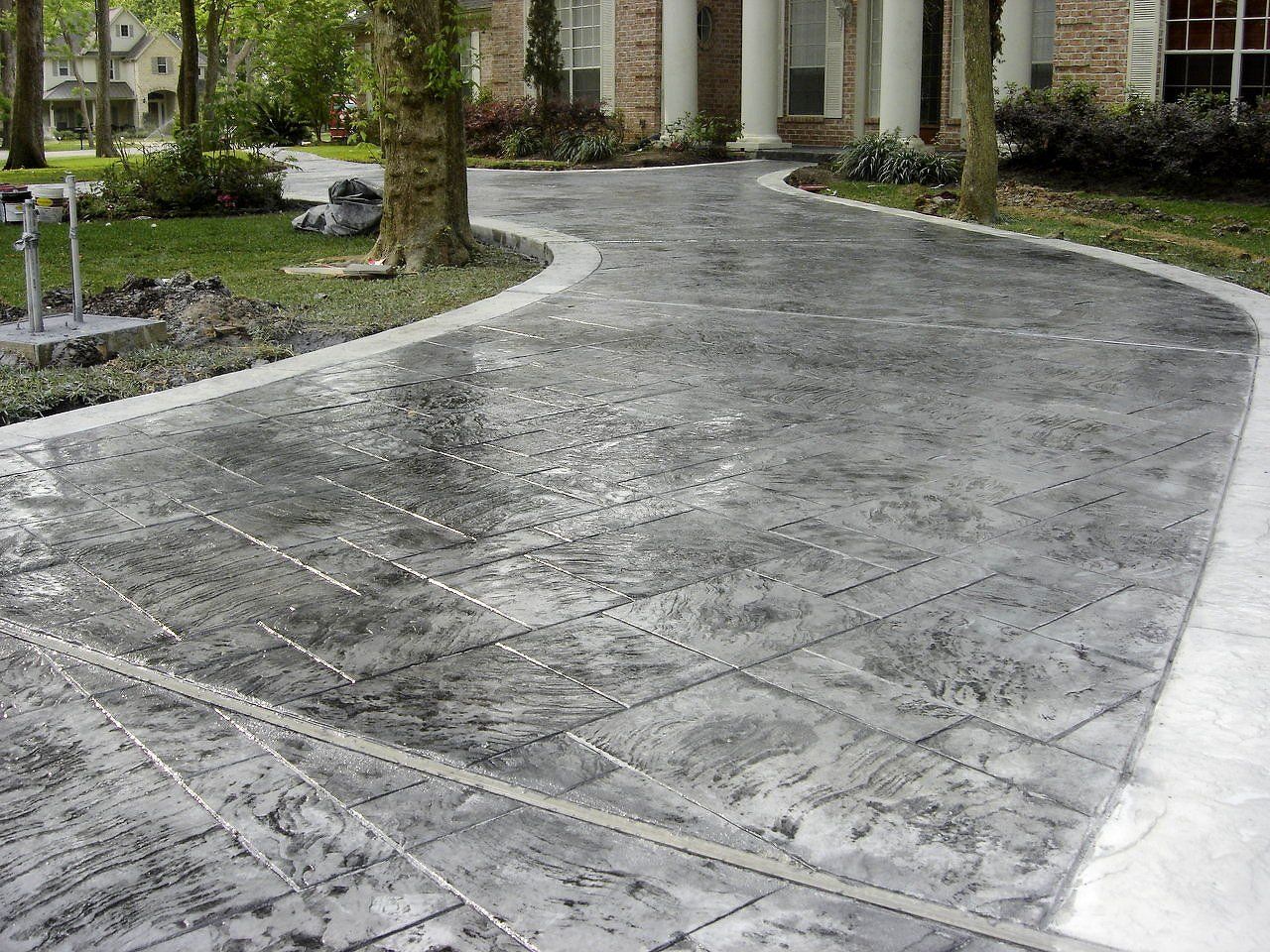Tips for Putting in a Concrete Driveway - Knoxville Concrete Contractors Co
Tips to Build a Concrete Driveway Knoxville Concrete Contractors Co
Concrete driveways are a common option for homeowners. They can be made in any dimension you'd like. Concrete driveways are sturdy and maintenance-free. They are also more suited for load-bearing , and superior heat reactions. Additionally, it improves curb appeal and is a green option. The strength of the material makes it an ideal option for homeowners. Concrete driveways are sturdy enough to withstand any type of vehicle because of their strength and capacity to bear loads.
Gravel is another option for driveways. It is a plant-based product that offers an substitute for concrete. This versatile material is easy to use and is an excellent choice for homeowners. Crushed rock or rebar mesh wire as well as fabric underlayment make excellent choices for driveways. These materials can be compacted using vibratory plate compactors or rammers. When you install a driveway constructed with gravel, make sure you adhere to manufacturers' instructions on the right distance and height.
The concrete used for driveways, the base must be strong and uniform. A base of 6" 12" of crushed gravel or stone is ideal for drainage and has more capacity to handle loads. The subgrade and the base must completely free of organic materials. Concrete driveways could be damaged through subgrade pores that are soft. Subgrade and base areas must slope away form buildings and other obstructions in order to allow adequate drainage. A proper drainage system requires an average elevation of just 1/4 inch per foot.
Concrete driveways are long-lasting and easy to maintain however the edges are susceptible to the stains of oil and other elements. Their edges are floated to provide maximum security, however, they are very susceptible to water leaks. Please follow the advice of the manufacturer when you decide to construct a driveway constructed of concrete. It's simple and inexpensive. If you're planning to install your driveway with a brand new design, be sure to talk to an experienced contractor. You'll be pleased with the outcomes and longevity of your concrete driveway.
To stop water from leakage to the outside in the near future, it is crucial to keep in place the concrete edges so that they float. For maximum safety, the edges of the driveway must be at least one-quarter or an inch in thickness. A lot of homeowners opt for an open aggregate driveway. It's stylish and durable. It doesn't need any maintenance. Asphalt-paved driveways last for more than 30 years. In this respect, it is prudent to take into the consideration this possibility.
Floating your concrete driveway is essential to ensure safety. While it doesn't require much attention and maintenance, it will develop staining as time passes. Concrete driveways don't have any drainage channels for rainwater. A poorly placed driveway can result in a ugly appearance. It's not only an issue regarding safety, but. If the amount of water has accumulated is excessively large and it causes flooding, it is possible to cause it.
Floating in the edges of concrete driveways is a good idea. It stops water from leaks and makes the driveway more safe and smooth. Concrete driveways without decorative finish should be sealed to avoid cracks. A poorly installed concrete driveway can cause expensive repairs. Any time it is important that you follow the directions of the manufacturer and plan for the possibility of the possibility of damage.
The ability to float these edges is essential to ensure the long-term durability. The edges must be clean, and a durable sealant is needed to stop the bleeding of water and to keep it from degrading an area of concrete. The edges on concrete driveways should be protected with a sealant to prevent it from discoloring as time passes. To keep this from happening over time, the top layer of concrete should be sealed, even if the concrete isn't waterproof. To prevent the elastomer from coming into contact on concrete surface, it's recommended to apply an asphalt-based layer or a sealing agent based on polymers.
Concrete can be used to make driveways that do not require decorative finishes. Although it's not mandatory to apply a decorative surface on concrete driveways. It can add beauty to your home. It's durable and can take on all weather conditions. No matter whether you pick a stylish or plain concrete surface it's the best option for driveways constructed of concrete. It's extremely inexpensive is you're seeking an upgrade.
Before you put in concrete driveways, it's important to determine the type of concrete that it's made of. The thickness of your driveway is affected by many factors, such as the amount of weight you'll need to place on it. It also depends on the soil's qualities, and your budget. If you're thinking of installing a new driveway, here are some guidelines to think about. Here are some good tips to help you select the ideal material. Once you've done this procedure, you'll be able to apply a concrete sealer.
If you're planning to put heavy loads on your concrete driveway it's best to keep the edges float. This helps prevent bleeding water out of the drive. It allows cracks that are not visible to be repaired and ensures that your driveway is protected from damage like potholes. You can choose to not use rebar for slabs that are less than 5 inches thick. Rebar stops bleed-water by making sure that bleeding water is prevented from evaporating.
If you're planning to install any concrete drive, you need to be sure that the concrete has not being weakened in any manner. Concrete driveways with a long-lasting durability are not susceptible to cracking. Concrete slabs are constructed from cement which is a natural substance that can withstand pressure up to. It is also able to support heavy loads. It is recommended to seal it so that water does not start vaporizing. After the concrete has been sealed the concrete should be able to hold up to the pressure of the vehicle.
The design and construction of a concrete driveway ought to be done by professionals that are well-versed in the field. It is important to consider the previous work's quality and the opinions of customers who have worked previously with us. When your concrete driveway has been finished, it will look as if it was laid out and level. A concrete driveway put together correctly will increase potential value for the home and will boost your confidence while driving. It will also make it easy to park your car in the garage.
Concrete driveways need joints that permit temporary expansion and contraction. Rebar is a crucial structural element of a concrete driveway. Rebar is required to be placed on an even area that is flat. This will stop your driveway from sinking into the form of an incline. Furthermore, it is easier to keep your concrete driveway in good condition by using the sealer. You should also think about the kind of materials you'll use when the finalization of your driveway.
The thickness of a driveway made of concrete depends upon the usage of the driveway, space, and your budget. Most driveways used for residential or commercial purposes range between four" or 6 inches in thickness, whereas highways are generally 11" up to 12" thick. If you select a larger or less solid foundation for your driveway made of concrete, be aware that you'll be paying more than it ought to be. In addition, you need to think about what shape the driveway will take.
If you're thinking of installing your driveway in concrete it's important to take care to prepare the site to avoid flooding. Clear all vegetation and ensure that the ground is well-drained. Then, install shapes of lumber around boundaries of your driveway to ensure a smooth foundation. Then, you can fill the gravel base with gravel of class 5. The gravel should be 4 inches thick , and it should be compacted as well as graded. In the next step, you'll need reinforcement materials including rebar, made of metallic or a wire grid made of steel.

